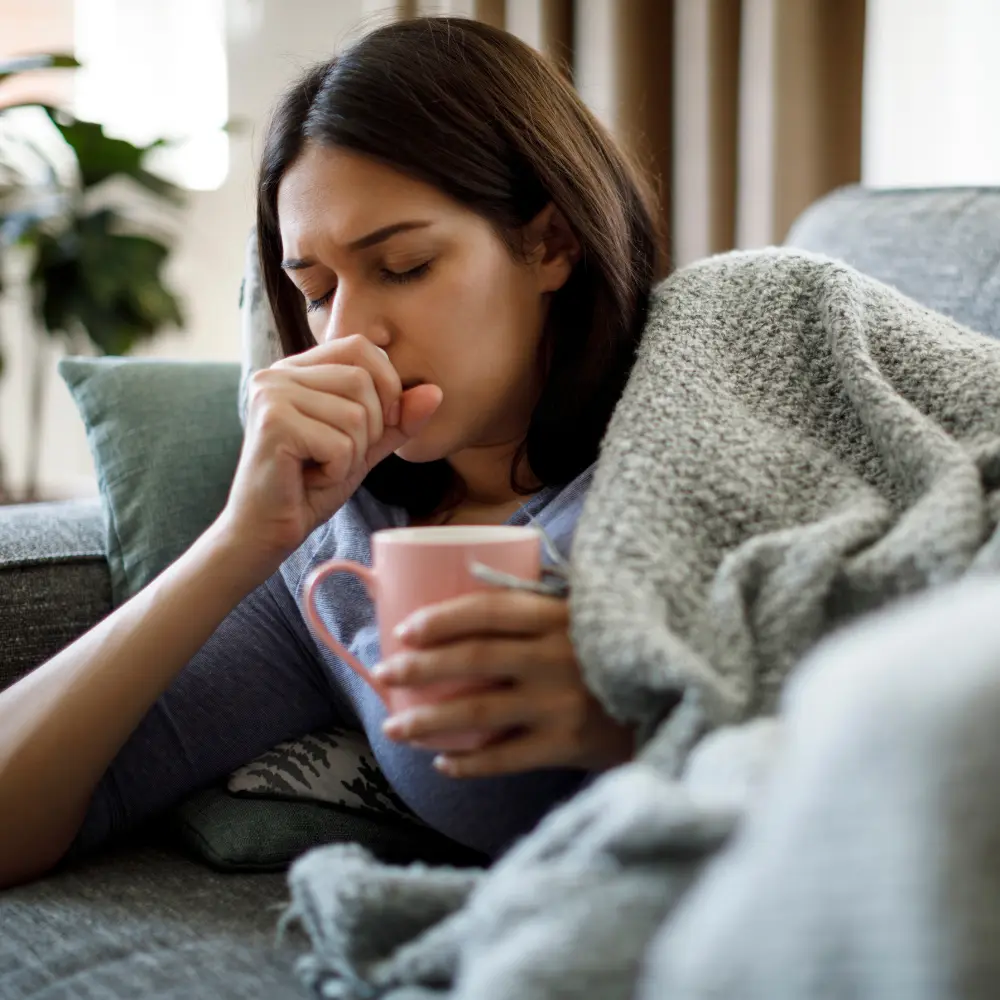In a world where the pursuit of novel experiences often leads us down unconventional paths, a curious question emerges: Can you smoke coffee? This unconventional query has recently found its place in popular culture, not just as a theoretical musing, but as a trend with a rapidly growing following.
On the surface, smoking coffee might seem like another harmless curiosity, an experiment in stretching the bounds of our beloved bean. But as is often the case with trends that challenge conventional wisdom, the reality may be more complex than we initially think.
In this comprehensive guide, we will venture into the world of coffee smoking. We’ll explore its origins, its appeal, and most importantly, the health implications that come with it. Let’s embark on this journey to understand why this latest fad might have unintended consequences for the adventurous coffee lovers among us. Brace yourself for a dive into a brewing controversy that’s stirring up conversations worldwide.
Can You Smoke Coffee? – Key Takeaway
- Understanding the Trend: The trend of smoking coffee has gained some popularity due to social media influence and a desire for novelty experiences. However, it’s important to be fully aware of the potential implications of this practice before engaging in it.
- Scientific Perspective: Smoking coffee involves burning coffee grounds and inhaling the resultant smoke. However, the scientific understanding of how this process affects the chemical composition of coffee and the amount of caffeine inhaled is currently limited.
- Health Risks: Smoking coffee poses several potential health risks, including respiratory irritation, possible caffeine overdose, and unknown long-term health effects. More research is needed to fully understand these risks, but the current evidence points towards caution.
- Debunking Misconceptions: Perceived benefits of smoking coffee, such as faster caffeine absorption, reduced appetite, and relaxation, are largely unproven and can be achieved in healthier ways. Traditional methods of caffeine consumption, like drinking coffee or tea, are safer and offer proven benefits.
- Promoting Healthy Caffeine Consumption: It’s important to promote safe and healthy caffeine consumption practices. This includes consuming caffeine in moderation, understanding its effects on the body, and seeking professional advice when necessary. Alternatives to smoking coffee, such as drinking coffee, tea, or other caffeinated beverages, offer healthier ways to enjoy the stimulant.
Are People Really Lighting Up Their Coffee Beans?

The question of whether people are actually smoking coffee might sound a bit absurd, and rightly so. This peculiar trend appears to have originated back in 2014 when the internet was flooded with reports of teens smoking coffee in an attempt to achieve a high. However, distinguishing between sensationalist news stories and factual occurrences can be tricky.
There are indeed some individuals online who assert that they have experimented with smoking coffee. However, it’s essential to note that these accounts are anecdotal, and there’s a distinct lack of actual case studies or concrete evidence to support this activity.
What Could Happen if You Smoked Coffee?
The effects of consuming coffee in its traditional liquid form are well-documented and understood. When it comes to smoking coffee, though, we find ourselves in relatively uncharted territory. Most of the information we have about the effects of this practice is derived from anecdotal accounts rather than scientific research.
According to these anecdotal sources, which include daring individuals who claim to have smoked coffee grounds or beans, the effects seem to vary depending on the amount and method of smoking.
For instance, some people who have reportedly mixed a small quantity of ground coffee with tobacco have described experiencing a head rush or a feeling of lightheadedness. In contrast, those who smoked in larger quantities reported symptoms reminiscent of caffeine overdoses, such as insomnia, jitteriness, and heightened energy levels.

Other adventurous souls who attempted to inhale coffee through vaping, or smoking brewed coffee using a bong or similar apparatus, reported feeling quite unwell afterward. The symptoms they experienced included:
- Intense coughing
- Dryness of the throat and tongue
- Tension-type headaches
- Rapid or pounding heartbeat
- Anxiety
- Nausea
However, these are merely individual experiences and lack the scientific rigor required to establish a clear picture of the effects of smoking coffee. Consequently, more research is needed to understand the potential impacts and risks associated with this unusual practice.
The Role of Caffeine in Smoked Coffee
Caffeine is known for its effects on alertness and energy levels. (1) However, the effects of caffeine when smoked are less clear.
While some coffee smokers report feeling an immediate caffeine buzz, the actual amount of caffeine that enters the bloodstream through smoking is likely to be much less than what would be obtained through drinking coffee.
Potential Chemical Changes and Toxins in Smoked Coffee
The act of burning any organic material, including coffee, can result in chemical changes that produce potentially harmful substances. When tobacco and coffee are burned, it produces tar and carbon monoxide, both of which can have negative effects on health when inhaled.
Furthermore, the roasting process of coffee beans can create acrylamide, a substance that has been linked to cancer when consumed in large amounts. (2) While this is also present in brewed coffee, the act of smoking may increase exposure to this harmful substance.
In summary, while smoking coffee may seem like an intriguing alternative to traditional coffee consumption, it’s crucial to consider the scientific aspects. Understanding the process, the role of caffeine, and potential chemical changes and toxins is vital to making informed decisions about partaking in this trend.
Why Did Coffee Smoking Become a Trend?
Several factors contributed to the rise of coffee smoking as a trend:
- The novelty factor: In an age where we’re continually searching for the next big thing, smoking coffee offered a fresh twist on an everyday item.
- The perceived benefits: Some advocates of coffee smoking suggested that it could deliver a faster caffeine kick. The thought of an instant ‘pick-me-up’ appealed to many, particularly among the younger generation facing the pressures of modern life.
- The do-it-yourself culture: As DIY practices have become popular, smoking coffee at home presented an interesting new challenge for experimental hobbyists.
Popularity Surge: The Role of Social Media and Internet Culture

As with many modern trends, the growth and spread of coffee smoking can’t be discussed without acknowledging the role of social media and internet culture. Platforms like YouTube, TikTok, and Reddit have played a significant part in disseminating information about the practice, providing tutorials, user experiences, and discussions that have fueled its popularity.
These platforms, with their global reach and potential for virality, have allowed the coffee smoking trend to spread rapidly, transcending geographical and cultural boundaries. It’s here that the trend found a youthful, adventurous audience, eager to explore novel experiences and share their discoveries with their peers.

While the coffee smoking trend has undoubtedly ignited curiosity, it’s crucial to delve deeper into the practice’s potential effects on health and well-being. As with any trend, particularly those involving substances for ingestion or inhalation, we must be mindful of possible consequences. As we continue our exploration, we will consider these critical aspects to ensure we have a balanced understanding of the phenomenon.
The Health Risks Associated with Smoking Coffee
As with any activity that involves inhaling smoke, smoking coffee comes with its set of health risks. Whether it’s the direct impact on respiratory health, the potential for caffeine overdose, or the long-term implications, it’s crucial to be aware of these potential hazards before embracing the trend.
The Impact of Coffee Smoking on Respiratory Health

Burning coffee produces smoke, which, when inhaled, can irritate the respiratory system. Repeated exposure to such smoke may lead to:
- Irritation of the eyes, nose, and throat
- Coughing and difficulty breathing
- Increased risk of bronchitis and other respiratory infections
- Aggravation of pre-existing respiratory conditions, such as asthma
In the long run, smoking coffee could potentially lead to more serious conditions, such as chronic obstructive pulmonary disease (COPD) and lung cancer, although more research is needed to establish these links definitively.
Caffeine Overdose: Potential Risks and Symptoms

While it’s unclear exactly how much caffeine is absorbed into the bloodstream when smoking coffee, there’s the potential for an overdose if large amounts are consumed. Symptoms of caffeine overdose include:
- Restlessness and insomnia
- Rapid or irregular heartbeat
- Nervousness or anxiety
- Digestive problems, such as nausea or vomiting
- Muscle tremors
In extreme cases, caffeine overdose can lead to serious health issues like seizures or even death.
Long-Term Health Implications of Smoking Coffee
The long-term health implications of smoking coffee are not fully understood, as this is a relatively recent trend and comprehensive studies are lacking. However, considering what we know about the health effects of inhaling smoke and the potential toxins in smoked coffee, there are likely to be risks involved.

Continued irritation of the respiratory tract, potential caffeine-related health issues, and exposure to potential carcinogens are all possible long-term health concerns. It’s important to bear these risks in mind and approach the trend with caution, particularly for those considering regular coffee smoking.
Overall, the evidence points to a clear need for caution and further research into the health risks associated with smoking coffee. While the novelty of this trend may be appealing, it’s essential to balance this against potential harm to our health.
Counterpoint: The Illusion of Smoking Coffee Benefits
As with any trend, especially one that involves consuming substances in novel ways, there are always claims of potential benefits. However, it’s critical to view these through a lens of skepticism and demand reliable, scientific evidence before accepting them. Let’s break down some of the perceived benefits of smoking coffee and provide a balanced perspective.
Debunking Perceived Benefits of Coffee Smoking

Some proponents of coffee smoking tout the following supposed benefits:
- Faster caffeine absorption: While it is true that substances can enter the bloodstream more quickly through inhalation compared to ingestion, the amount of caffeine that survives the burning process is likely minimal. Consequently, the stimulatory effects of smoking coffee may be more psychological than physiological.
- Reduced appetite: Some coffee smokers claim that the practice helps to suppress appetite. However, it’s worth noting that caffeine, whether smoked or ingested, can have this effect. More importantly, appetite suppression in this way can lead to unhealthy eating patterns and nutrient deficiencies.
- Relaxation: Some people find the act of smoking itself to be relaxing. However, there are many ways to achieve relaxation that do not involve the potential risks associated with inhaling smoke.
Comparative Health Effects: Smoking Coffee vs Drinking Coffee
Comparatively, the health effects of drinking coffee are well-studied and generally positive when consumed in moderation. Regular coffee consumption has been associated with a reduced risk of several diseases, including Parkinson’s disease, liver disease, and type 2 diabetes. It is also a source of antioxidants and can enhance cognitive function.
On the other hand, smoking coffee, as we have already discussed, presents several potential health risks, from respiratory irritation to the possible intake of harmful substances. The benefits of coffee are best realized through its traditional method of consumption: brewing.
Misinformation and the Need for Authoritative Health Advice
In the age of the internet and social media, information spreads rapidly, but not all of it is accurate or beneficial. The trend of smoking coffee underscores the importance of seeking authoritative health advice and not falling prey to misinformation or trends that can potentially harm our health.

To sum up, while smoking coffee might be a novel trend, the perceived benefits are largely illusionary. The health risks, on the other hand, are real and must not be ignored. It’s important to consider the comparative health effects and debunk misinformation before embracing such practices. As always, when it comes to health, science and trusted medical advice should guide our decisions.
Are Caffeine Vapes Equally Harmful?

Diving into the world of caffeine vapes, it quickly becomes apparent that these products bear little resemblance to the familiar aroma and flavor of coffee. Instead, these devices capitalize on the energizing properties of other ingredients typically found in energy drinks and dietary supplements, such as guarana, ginseng, and taurine.
The Question of Caffeine Sources and Flavor Profiles in Vapes
If your heart desires the rich flavor and aroma of the coffee, your best bet would still be a traditional cup of joe or a visit to your favorite café. Caffeine vapes, despite their name, do not usually contain any coffee-derived ingredients. They derive their stimulating effects from sources that are different from the beloved coffee bean.
The Health Implications: What We Know and Don’t Know

While research into the long-term effects of vaping is still ongoing, there are certain known potential risks associated with inhaling caffeine through this medium. Aside from caffeine, vaping products can contain substances linked to severe lung conditions. A case in point is diacetyl, a flavoring agent found in various vape products that has been associated with a lung disease colloquially known as “popcorn lung.”
The Regulatory and Quality Assurance Dilemma
An important consideration when looking into caffeine vapes is the current lack of regulation in many countries, including the United States. This situation creates uncertainty regarding the precise contents of these products. What you’re inhaling when using a vape could include a mix of:
- Ultrafine particles
- Volatile organic compounds (VOCs)
- Carcinogenic substances
- Heavy metals, such as lead and nickel
- Nicotine
Nicotine, Caffeine, and Unpredictable Intake Levels
It’s worth noting that e-cigarettes generally contain nicotine, even when they are marketed as nicotine-free. Nicotine is not only addictive but can also increase the risk of various health conditions. It also affects brain development in adolescents and young adults.
When it comes to caffeine vapes, the amount of caffeine delivered with each puff can vary significantly. Factors such as the brand of the product and the duration of inhalation can influence how much caffeine enters your system. This variable intake, coupled with individual differences in caffeine tolerance and consumption from other sources (like coffee, tea, or certain medications), can lead to the risk of ingesting excessive amounts of caffeine.
The Risk of Overconsumption: Caffeine Overdose
High concentrations of caffeine can lead to unpleasant side effects and, in extreme cases, caffeine overdose. This is a risk that users should be aware of when considering the use of caffeine vapes.
To sum up, while the notion of caffeine vapes might seem appealing to some, the reality is fraught with uncertainties and potential health risks. It’s always crucial to be fully informed about the products we consume and the potential impacts they can have on our health.
Alternatives to Coffee Smoking and Promoting Healthy Caffeine Consumption

When it comes to caffeine consumption, there are numerous healthier and safer alternatives to smoking coffee. Understanding these options, recognizing the importance of moderation, and following expert advice can help promote a balanced caffeine lifestyle.
Safe and Healthy Ways to Consume Caffeine

The most common and safe method of caffeine consumption is through drinking beverages like coffee, tea, or energy drinks. These methods do not involve the risks associated with inhaling smoke. Here are some healthy options:
- Traditional Brewed Coffee: A staple in many cultures, brewed coffee provides a healthy amount of caffeine and is rich in antioxidants.
- Tea: Whether it’s green, black, or oolong, tea is a great source of caffeine. It also contains antioxidants and has been linked to various health benefits.
- Caffeinated Water or Energy Drinks: These provide a controlled amount of caffeine, often alongside other nutrients. However, it’s crucial to check the sugar content and additional ingredients in energy drinks, as some can be high in sugars and artificial additives.
- Dark Chocolate: Yes, even chocolate! Dark chocolate contains a small amount of caffeine and is also rich in antioxidants.
The Importance of Moderation in Caffeine Consumption
While caffeine can provide a helpful energy boost and cognitive enhancement, it’s important to consume it in moderation. Excessive caffeine can lead to restlessness, insomnia, rapid heart rate, and in extreme cases, caffeine overdose.

The Food and Drug Administration (FDA) recommends a maximum daily caffeine intake of 400mg for most adults, which equates to about four standard cups of coffee. Pregnant women, people with certain health conditions, and those sensitive to caffeine may need to consume less.
Learn more about coffee and pregnancy with our article: Can you drink coffee while pregnant?
Expert Advice for a Balanced Caffeine Lifestyle

Maintaining a balanced caffeine lifestyle means consuming caffeine in a healthy, controlled manner. Here’s what the experts recommend:
- Know your tolerance: Individuals have varying caffeine tolerances. Observe your body’s response and adapt your consumption accordingly.
- Time your caffeine consumption: Caffeine is best consumed early in the day to avoid disrupting your sleep cycle. Try to avoid caffeine in the late afternoon and evening.
- Stay hydrated: Caffeine is a mild diuretic, which means it can dehydrate you. Drink plenty of water alongside your caffeinated beverages.
- Seek professional advice: If you’re unsure about your caffeine consumption, particularly if you have underlying health conditions, seek advice from a healthcare professional.
To sum up, while the trend of smoking coffee may be novel and intriguing, there are far safer and healthier ways to consume caffeine. By adhering to safe practices, understanding the importance of moderation, and following expert advice, you can enjoy the benefits of caffeine in a balanced and beneficial manner.
Conclusion
In conclusion, the question “Can you smoke coffee?” may elicit a sense of intrigue and novelty, it’s important to consider the potential unintended consequences. The appeal of trying something different, especially when it becomes a trend, can be enticing. However, as we’ve explored, the risks and uncertainties associated with smoking coffee highlight the need for caution.
This trend underscores the importance of understanding the scientific and health implications of our habits and choices. It also serves as a reminder of the potential pitfalls of misinformation and the need for authoritative health advice. Instead, we should focus on healthier, safer methods of caffeine consumption, always remembering the importance of moderation.
The world of coffee is rich and diverse, and there are many ways to enjoy it without resorting to potentially harmful practices. As we continue to explore this beloved beverage, let’s remember to prioritize our health and well-being. After all, the best cup of coffee is one that not only tastes great but also contributes positively to our overall health.
FAQ
Can you smoke any type of coffee bean?
While theoretically, any type of coffee bean could be smoked, the effects and safety of this practice remain largely unexplored and not recommended.
Is smoking coffee legal and safe?
While there's no law explicitly prohibiting smoking coffee, it's not considered safe due to potential health risks and lack of scientific study.
How does smoking coffee compare to drinking it?
Smoking coffee is not comparable to drinking it as the delivery, experience, and potential health effects of these two methods are vastly different.
Are there any famous personalities or cultures that engage in coffee smoking?
As of now, there are no notable personalities or cultures known to endorse or practice coffee smoking.













